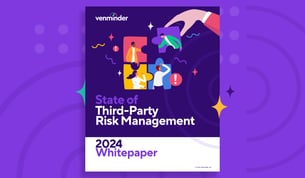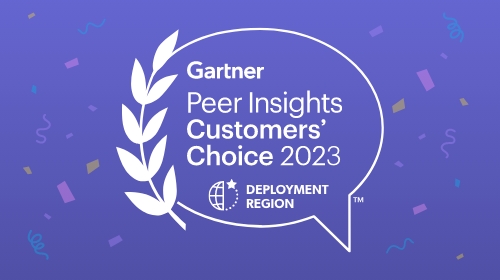podcast
Consequences of Poor Vendor Financial Performance
Consequences of your vendor's poor financial perfomance.
You report the vendor's financial health to senior management and board. What happens when the financial health is poor? We will go over the domino effect, the issue in the industry and what you can do about it.
You may also be interested in:
Video Transcript
Welcome to Venminder’s Third Party Thursday! I am Mike Bowers and and I am the Chairman here at Venminder. Today’s topic: The consequences of a Vendor, whose financial performance is poor.
Each year we all make presentations to report the health of our various vendors. Included in the report is the vendor’s financial performance. Some of us are more comfortable than others when we make presentations and we all have peculiar traits that drive our level of comfort.
Mine is pretty simple: I don’t want to be embarrassed.
And in a financial institution I can imagine when you make these vendor performance presentations, you probably don’t want to be embarrassed either, particularly in front of the:
- Board
- Audit Committee
- Executive management
First of all you need to understand: Financial performance of a vendor is NOT under your control and really is NOT even an event of default in your contract. So, the focus of these reviews should be on helping your management team understand the consequences of financial performance. I am not giving presentation tips; these are fundamental tips.
So, you have a vendor with poor financial performance. Here are the consequences: It is a domino effect AND if not understood, can be crippling to your ability to deliver quality products to your customers.
It works like this: Let's suppose the financial health is graded either “requires monitoring” or “requires intense monitoring.” More than likely the grading is because of declining income and every company I have ever analyzed with this kind of problem reacts the same way:
- Declining income means…. cost cuts
- Cost cuts mean cutting staff
- Cutting staff means declining service levels
- Declining service levels means
- Declining response time, also it means
- Declining maintenance on security and systems
- Which, by the way, means findings on SOC reports and the possible sunset of products
Now, is poor financial performance really an industry issue? Here are the ratings we use. We have four buckets:
- Adequate (highest); well run companies
- Moderate: normal business issues
- Needs monitoring: shows signs of problems
- Needs intense monitoring: (lowest category) has well defined problems
When we look at our entire universe of vendors supplying services to financial institutions they fall into the following buckets:
- Adequate 22%
- Moderate 41%
- Needs monitoring 23%
- Intense monitoring 14%
With 14% needing intense monitoring and 23% needing some type of monitoring, chances are your annual performance reviews will have some stinkers in it. But remember, you are not in control of that.
Can you do anything? In other words, what do you tell your board or management? Here are the steps that we suggest you use in your presentation:
- Outline for your review committee if the product is critical or not. Tell the committee if you believe financial performance will or will not affect delivery to customers. Let the committee understand the remaining term of the contract
- Give them a picture of who else can provide similar services.
And by the way: Are the financials on this suggested alternative vendor better than your current provider? e.g. telecom.
-
How long do you estimate it will take to convert to a new vendor?
-
And finally, what is the cost to switch.
Lastly, what do I tell my vendor? Vendor financial performance is not a secret to the vendor (your sales person, maybe, but not to the company).
You need to have a conversation with the current vendor:
- Outline your concerns;
- Ask how they intend to fix it and
- Clearly get an understanding of when you should expect it to be fixed.
If you have gone through these steps, you will have no fear of being embarrassed.
Thanks for watching. This is Mike and don't forget to subscribe for next week's Third Party Thursday.
Subscribe to our Third Party Thursday Newsletter
Receive weekly third-party risk management news, resources, and more to your inbox.
Ready to Get Started?
Schedule a personalized solution demonstration to see how Venminder can transform your vendor risk management processes.















